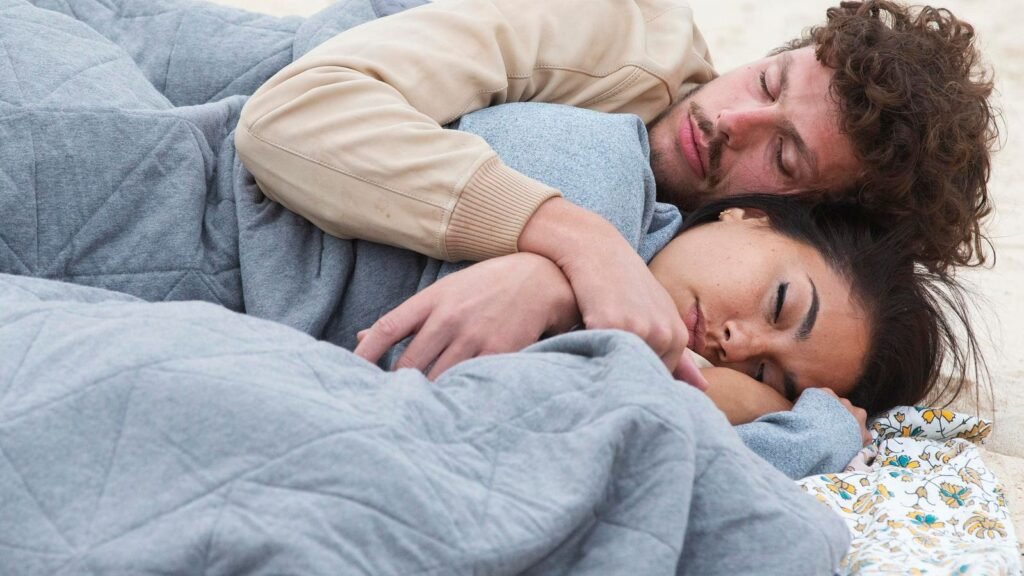Sleep is the foundation of mental health, physical health and performance, according to Andrew … [+]
Sleep is the foundation of mental health, physical health and performance according to Andrew Huberman PhD, noted podcaster and Stanford neuroscientist. Here are 10 drug-free ways to improve sleep that Huberman recommends.
1. See direct sunlight immediately after waking up.
Natural light stops the production of melatonin – the sleep hormone – and promotes cortisol – helping you wake up. This resets your internal clock (i.e circadian rhythm) signals the start of the day and releases serotonin which boosts mood and increases calmness. This can help reduce symptoms of seasonal affective disorder – the depressive symptoms that some people suffer in the winter. Huberman recommends 10 minutes on a sunny morning to 30 minutes on an overcast day.
2. Maintain consistent sleep and wake times.
Consistency stabilizes the circadian rhythm. This promotes deeper, more restorative sleep, improving memory, mood and cognitive function as well physical health and mental health. It also maximizes daytime alertness. Once the body adjusts to a routine, waking up becomes effortless due to the body’s early morning rise in cortisol.
3. Lower the temperature of your room.
As bedtime approaches, your body’s core temperature drops. A cooler room facilitates this reduction, helping you fall asleep faster and supporting deeper sleep. An overly warm environment disrupts the progression of sleep cycles, reduces deep and rapid eye movement (REM) sleep, and increases nighttime awakenings. Huberman recommends an ideal sleeping room temperature range of about 65°F, much cooler than most people keep their bedroom.
4. Take a bath before bed.
A hot bath raises the body temperature, which then drops quickly when you get out into the cool air, which causes drowsiness. Bathing is also relaxing. Establishing a bedtime routine can signal to your body that it’s time to wind down and prepare for sleep.
5. Lose your phone at night.
Your phone glow is a blue light that interferes with melatonin—the production of your sleep hormone. Your phone is also stimulating, making it harder to shut down and get ready for bed. The hums and beeps of your phone also interrupt your sleep.
6. Read a book or meditate before bed.
Reading before bed distracts you from the stress of the day and helps you relax, signaling that it’s time to relax. Meditation can also reduce stress and anxiety that can disrupt sleep – particularly techniques such as guided image.
7. Review your caffeine intake.
Caffeine is a stimulant. It blocks the brain chemical adenosine that builds up during the day and makes you sleepy. The problem is that caffeine hangs around in your body for 6 hours after you drink it. Limiting your intake can help you sleep better. Huberman recommends 400 mg daily—about four 8-ounce coffees. Sensitivity to caffeine also varies, so you need to adjust your intake to your body’s response. Huberman recommends delaying caffeine intake 90-120 minutes after waking to align with the natural peak of morning cortisol production and avoiding caffeine 8-10 hours before bed.
8. Avoid or reduce alcohol use.
Alcohol helps you fall asleep faster. However, it can disturb your sleep, especially later at night. It wakes you up and makes it hard to go back to sleep. Alcohol also reduces REM sleep. Alcohol also relaxes your throat muscles, making snoring worse and increasing your risk sleep apnea-pauses in breathing during sleep. Huberman recommends that if you choose to drink, limit your consumption or drink earlier in the day so your body has more time to metabolize before bed.
9. Start dimming the lights an hour before bed. Then sleep in total darkness.
Reducing nighttime light intensity increases melatonin production and mimics the natural progression from daylight to night, also creating a routine that psychologically signals to your body that it’s time to slow down and get ready for sleep. Sleeping in a completely dark environment helps you fall asleep faster and maintain deep sleep. Any light at night—even a dim one—can cause you to wake up or go into light stages of sleep.
10. Keep the lights low if you wake up at night.
If you wake up in the middle of the night for any reason, such as needing to use the bathroom, use as little light as possible. If you need light, a red light it will disrupt your circadian rhythm less.
